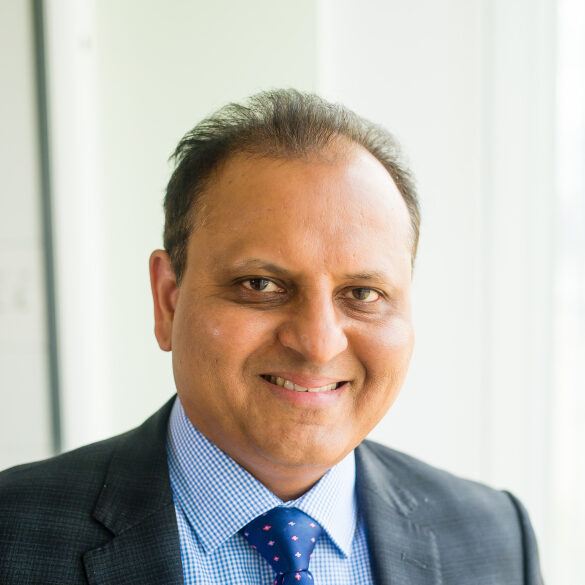Endometriosis is a painful disorder that affects approximately 10% of women and girls of reproductive age, although women of any age can have it. The condition can affect fertility but there are options available if you are having trouble conceiving or are pregnant and suffer from endometriosis.
What is endometriosis?
When you have endometriosis, the tissue that usually lines the inside of your uterus grows outside of it. The name for this tissue is the endometrium. In endometriosis, the endometrium can grow in the ovaries, the tissue that lines the pelvis, and sometimes the bowel or the bladder.
Along with your menstrual cycle, endometrial tissue thickens, before breaking down and bleeding. The outgrowing tissue has no way to leave the body and becomes trapped, this can lead to inflammation of surrounding tissues, cysts (endometriomas) and the development of scar tissue that can cause tissues and organs to stick together.
“Endometriosis can be painful, particularly during your period. It can also cause fertility problems. However, there is a range of surgical and non-surgical treatments available” explains Mr Kumar Kunde, consultant gynaecologist and obstetrician.
Endometriosis symptoms
Not everyone experiences the same endometriosis symptoms. You might not have noticeable symptoms, or you might feel a lot of discomfort. Among the potential symptoms of endometriosis are:
- stomach pain
- lower back pain
- period pain that prevents you from engaging in everyday activities
- pain when you go to the toilet during your period
- pain during or after sex
- constipation, diarrhoea or sickness during your period
- blood in your urine during your period
- difficulty becoming pregnant
Endometriosis can also make you have heavy periods, causing you to use a lot of sanitary products, or even bleed through to your clothes. Distress from endometriosis can have a large impact on life and lead to depression in some cases.
Endometriosis and fertility
Endometriosis can affect fertility, such as your chances of getting pregnant. This can be due to the effect of inflammation in the pelvis caused by endometriosis or due to damaged ovaries or fallopian tubes as a result of scarring from endometriosis. Just because you have endometriosis, it doesn’t mean you will have problems getting pregnant or need treatment.
Fertility treatments
If you have endometriosis and are struggling to conceive, there are a range of fertility treatments available at Guy’s and St Thomas’ Private Healthcare to assist with conception:
In-vitro fertilisation (IVF)
In-vitro fertilisation (IVF) treatment – the doctor will retrieve your eggs and fertilise them with sperm outside the body, before the fertilised egg is implanted in your uterus.
Intracytoplasmic sperm injection (ICSI)
Intracytoplasmic sperm injection (ICSI) involves the injection of live sperm into your eggs. Performed in a laboratory, this procedure creates a fertilised egg which is implanted into your uterus. It is the direct injection that differentiates ICSI from traditional IVF.
Superovulation and intrauterine insemination
These two techniques are often combined and involve taking medication to induce egg production (superovulation) and placing sperm in the uterus directly (intrauterine insemination).
Endometriosis and pregnancy
Some women with endometriosis can conceive naturally without any treatment and once pregnant the woman will find relief from menstrual symptoms of endometriosis because the periods stop in pregnancy.
After delivery of the baby and once you have stopped breastfeeding, the periods will return and usually, women start experiencing the symptoms that they had before pregnancy. Depending on your symptoms, management of endometriosis will continue after you have delivered your baby, in consultation with your doctor. Many women choose to use hormonal contraceptives and these are also effective in controlling symptoms of endometriosis.
If you conceive after surgical treatment of endometriosis at St Thomas’ Hospital, you will benefit from continuity of care with Mr Kunde who is able to provide ongoing maternity care during your pregnancy.
To make an appointment with our specialist team, please contact our dedicated customer services team.
Related content
-
Endometriosis
Endometriosis is a condition that can affect women of any age, where tissue that should occur in the lining of the womb is found outside of this in other places.
-
Gynaecology
Our gynaecology service offers comprehensive care for a wide range conditions including endometriosis, menopause and urinary incontinence.
-
Maternity care
Our maternity specialists provide care for you and your baby throughout pregnancy and birth.
